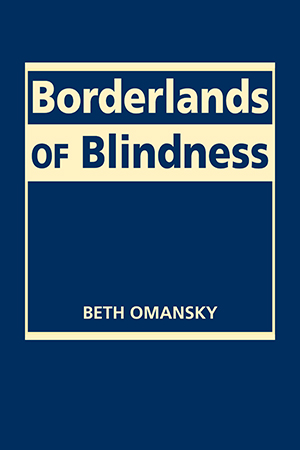A person may be legally blind, yet not "blind enough" to qualify for social services. Beth Omansky explores the lives of legally blind people to show how society responds to those who don’t fit neatly into the disabled/nondisabled binary. Probing the experience of education, rehabilitation, and work, as well as the more intimate spheres of religion, family, and romantic relationships, her frank and theoretically sophisticated portrait of the legally blind experience offers an original insight into our understanding of the social construction of disability.
Beth Omansky is an independent scholar and activist in Portland, Oregon.
"A compelling account of the challenges faced by the legally blind in the socially constructed 'hinterland' between the sighted and the totally blind.... Insightful and thought-provoking."—Michael Salter, Journal of Sociology
"Educational, enlightening and, above all, forthcoming.... It holds much value for understanding the legally blind experience and its application to the education of not only the sighted community but also, more importantly, the visually impaired."—Julie Yamanashi, International Journal of Disability, Development, and Education
"A well-written, well-researched study about the experience of being partially sighted.... One of the greatest strengths of Borderlands is that it manages to be both technical and profound without feeling dry and cryptic."—Ellen Brooks, Oral History Review
"Adds new knowledge to disability studies by providing detailed information surrounding a sensory impairment that is not always apparent and is lesser known.... It is [also] great for students planning on carrying out their own research project as it provides clear and concise arguments surrounding research methods and methodologies within disability studies."—Erin Pritchard, Disability & Society
"A provocative analysis of how individuals who are legally blind are portrayed by society."—Sharon Sacks, Journal of Visual Impairment & Blindness
"Highly recommended."—Choice
"A must-read if you want to 'see' blindness differently."—Rod Michalko, University of Toronto
"A book to be welcomed.... As someone who has lived in the borderland of blindness from birth, I would thoroughly recommend it to anyone who wants to gain an in-depth understanding of the experience of visually impaired people who have some sight."—Sally French, The Open University






